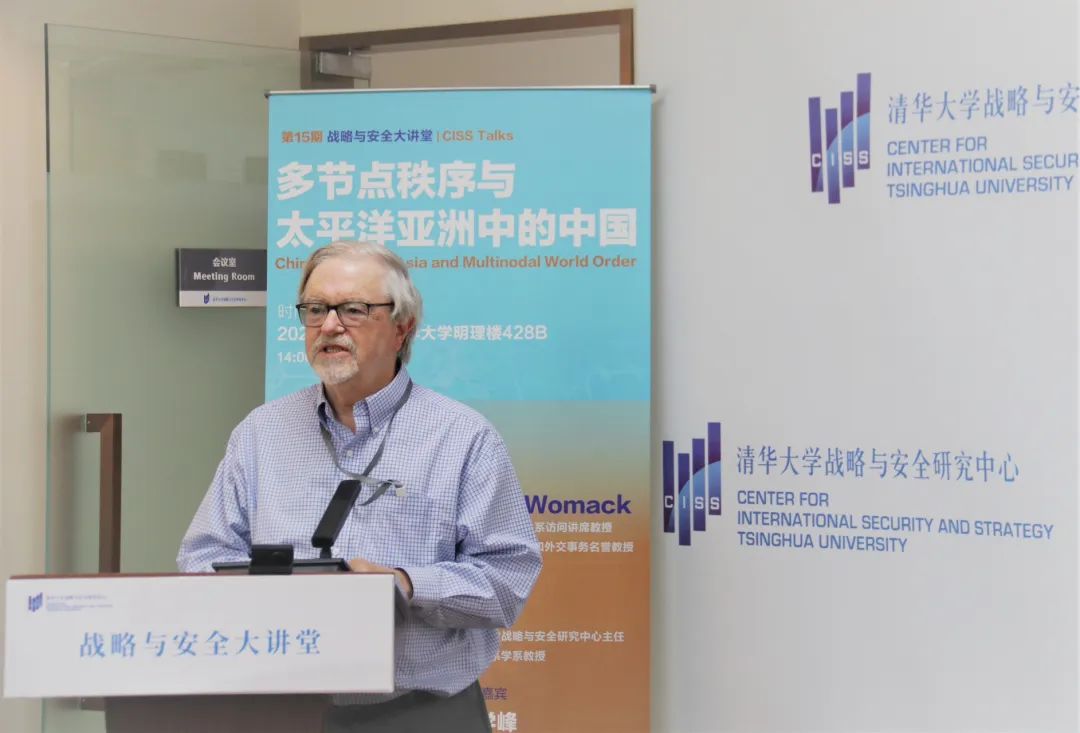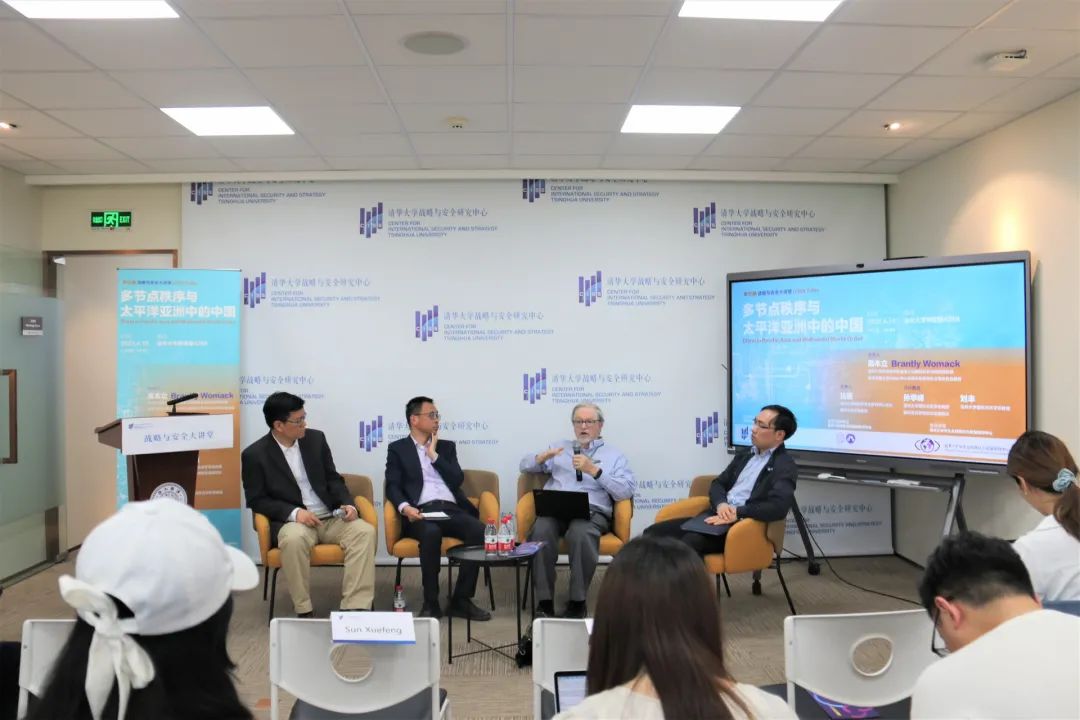On April 18, the Center for International Security and Strategy at Tsinghua University (CISS) held the 15th CISS Talks. Professor Brantly Womack, Boeing Visiting Chair in International Relations, Schwarzman College, Tsinghua University, and Senior Fellow and Emeritus Professor of foreign affairs at the Miller Center, University of Virginia, shared his views on the topic of “China in Pacific Asia and Multinodal World Order” in the lecture. The lecture was hosted by CISS, organized by the Tsinghua University Student Association of International and Strategic Studies (SAISS), and co-organized by the Center for Global Competence Development at Tsinghua University. It was chaired by Professor Da Wei, Director of CISS, where Professor Sun Xuefeng and Professor Liu Feng from the Department of International Relations of Tsinghua University were invited as discussants.

Professor Brantly Womack pointed out that the current global order had been transformed into a “multinodal order” and that China’s global position was based on its central position in the “Pacific-Asia” region. With its growing population, expanding production capacity, and increasing international engagement, China has moved from being an “outsider” and “significant the other” to the current “center of attention”. The region’s “open regionalism” is currently being challenged by “deglobalization” and “polarization”. The future strategic actions of China will have a profound impact on the development of “open regionalism”.

In the following roundtable discussion, Professor Sun Xuefeng, Professor Liu Feng, and Professor Da Wei shared their insights on this topic and discussed with Professor Brantly Womack the behavior patterns of countries in the “Pacific-Asia” region in terms of the “multinodal world order”, the role the United States played in the process of China’s increasing approach to the regional center, the definition of the “Pacific-Asia” region, and the relations among major powers, etc. In the end, Professor Brantly Womack answered questions from students and faculty, including the specific meaning of “order transition” and the relationship between regionalization and globalization.
